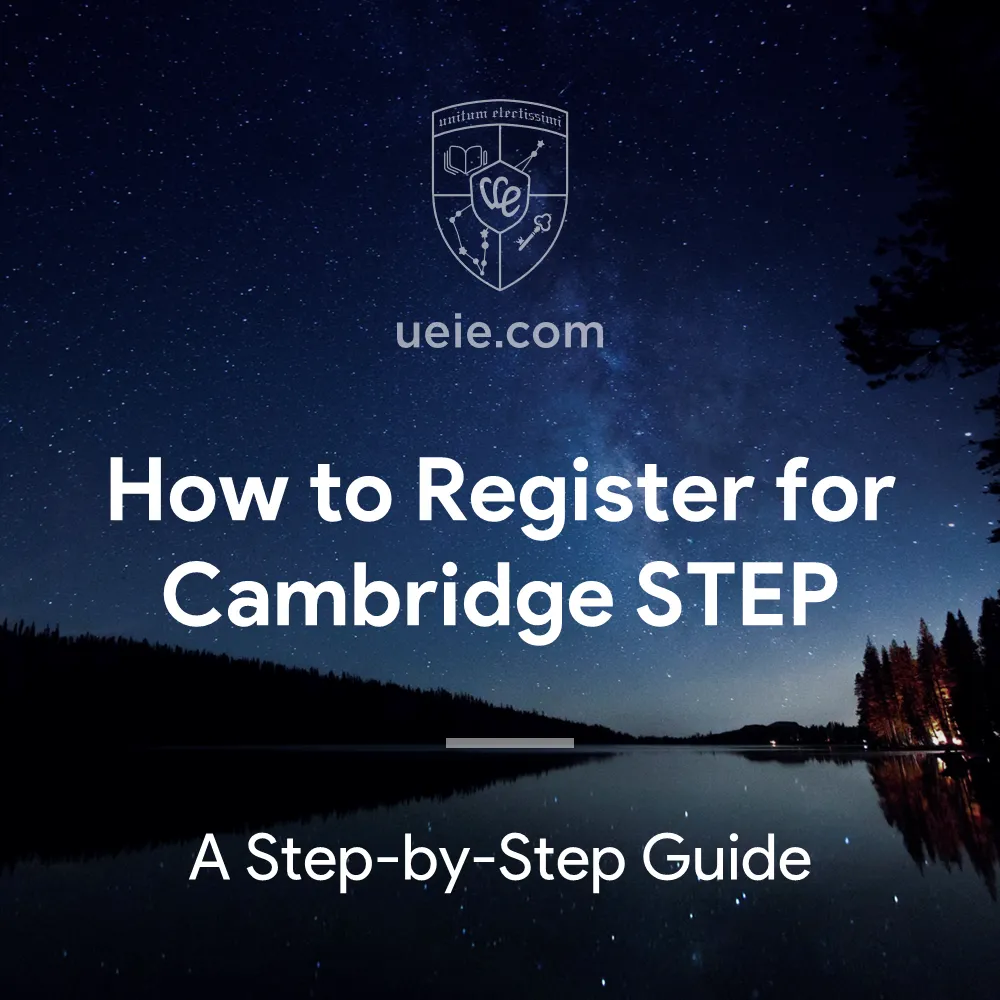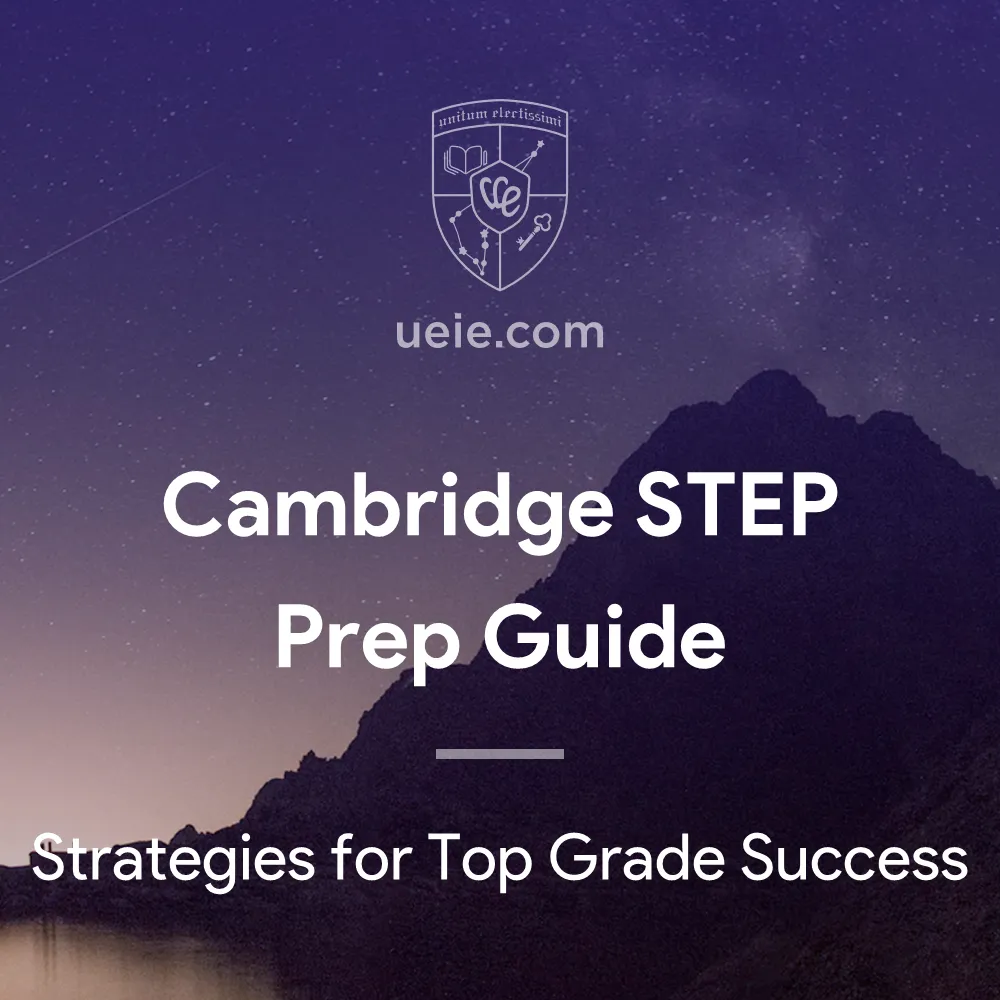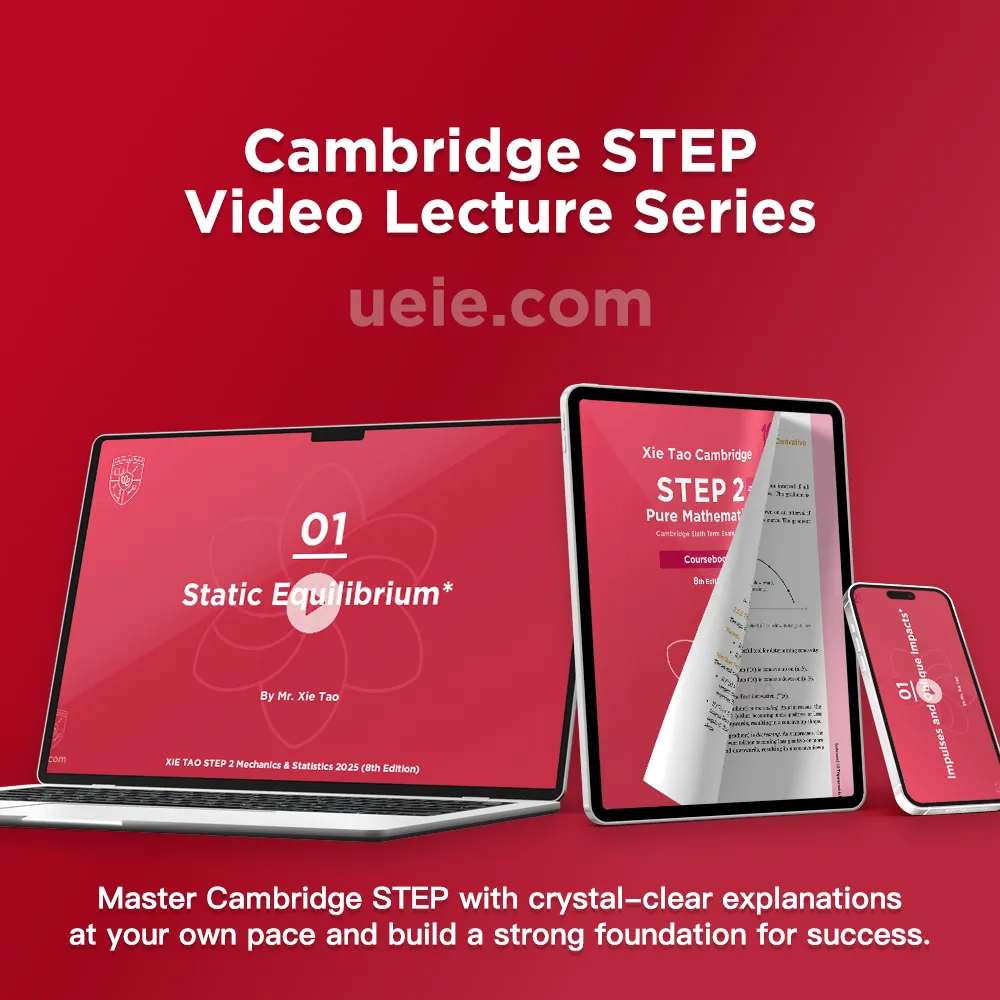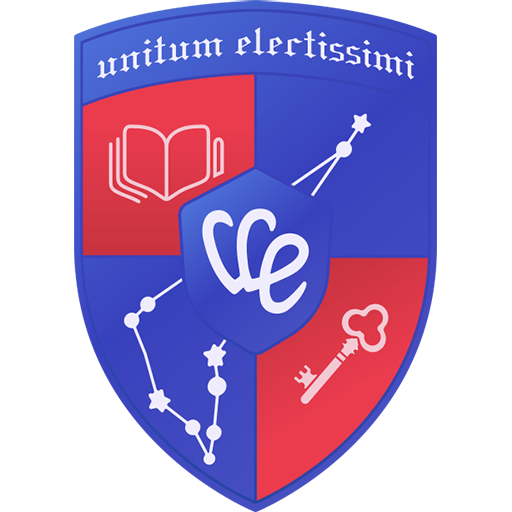Cambridge STEP Demystified: All Aspects Covered

For students planning to apply for mathematics-related courses at top UK universities like Cambridge, the STEP exam is both a serious hurdle and a chance to showcase exceptional mathematical aptitude. Successfully navigating this challenge hinges on a clear understanding of its structure and demands. This comprehensive guide aims to provide students and parents with a systematic and clear overview of the essential, up-to-date information about the STEP exam.
I. What is the Cambridge STEP Exam?
Cambridge STEP exam, standing for Sixth Term Examination Paper, is a renowned and highly challenging assessment of mathematical thinking. Since 2024, the responsibility for organising and managing the STEP exams has shifted from Cambridge Assessment Admissions Testing (CAAT) to the OCR (Oxford Cambridge and RSA) examination board.
Unlike standard school mathematics exams, STEP’s primary goal isn’t just to check familiarity with specific syllabus topics. Rather, it thoroughly assesses a candidate’s ability to engage with complex mathematical problems. This involves:
- Applying mathematical knowledge to solve problems in unfamiliar situations.
- Employing rigorous logical reasoning and constructing mathematical proofs.
- Demonstrating depth, adaptability, and creativity in mathematical thought.
For this reason, many leading UK universities offering mathematics-related courses – including Cambridge, Imperial College London, University College London, and Warwick – often make STEP results a key part of their conditional offers, helping them identify applicants with outstanding mathematical potential.
It’s also worth noting that while the University of Oxford doesn’t require STEP for its mathematics and related courses, its official admissions advice encourages strong applicants to sit the papers to further demonstrate their academic strengths.
II. Who Needs to Sit the Cambridge STEP Exam? (For 2026 Entry)
Based on extensive teaching experience and observing numerous applications over the years, dedicated preparation for STEP significantly elevates a student’s mathematical reasoning skills and their capacity to tackle demanding problems. Even though STEP isn’t mandatory for every top UK university mathematics course, students who develop these deeper skills often present as stronger candidates during the application process (especially at interview), ultimately improving their chances of receiving the offer they want.
1. Universities Making Offers Based on STEP Results
In recent times, university admission test requirements for mathematics-related courses in the UK have changed considerably. The wider adoption of the TMUA (Test of Mathematics for University Admissions), in particular, has prompted some universities (such as Imperial College London for its computing courses) to use it as their main assessment tool, thereby adjusting how much they rely on, or strictly require, STEP.
The table below summarises some universities and subject areas that, for 2026 entry, continue to factor STEP results into their admissions considerations (whether as a requirement, an alternative, or simply recommended), detailing their specific expectations:
| University | Subject Area | Requirements on Admissions Tests | Grade & Paper | Alternative Test / Notes |
|---|---|---|---|---|
| Cambridge | Mathematics | STEP is compulsory | Grade 1 or S in STEP 2 and/or 3 | No alternative |
| Imperial College London | Computing and related courses | TMUA is the primary requirement | Grade 2 or above in STEP 2 or 3 | STEP may be considered as an alternative only in exceptional circumstances (e.g., unable to sit TMUA, or borderline TMUA result) |
| UCL | Mathematics and related courses | STEP is optional | Grade 2 or above in STEP 2 or 3 | Can be used to potentially reduce A Level requirements; AEA Distinction can substitute for STEP result |
| Warwick | Mathematics and related courses | TMUA / STEP / AEA accepted | Grade 2 or above in STEP 2 or 3 | TMUA or AEA results can substitute for STEP result |
2. Flexible Offers at Cambridge University
For A Level applicants who achieve grades of AAA and obtain Grade 1 in both STEP 2 and STEP 3, some Colleges may extend a flexible offer. Based on previous years’ information and trends, the following Colleges have been known to offer flexible arrangements:
- Downing College: Has been mentioned as part of a flexible offer scheme.
- Emmanuel College: Also listed as participating in flexible offers.
- Girton College: Included in lists of colleges with potential flexible offers.
- Jesus College: Known to consider applicants with AAA and strong STEP results.
- Lucy Cavendish College: Part of the flexible offer scheme.
- Newnham College: Has participated in flexible offer arrangements.
- Robinson College: Listed among colleges with flexible admissions.
- Sidney Sussex College: Known to consider AAA with strong STEP.
- Trinity Hall: Has been part of flexible offer schemes.
Important Considerations:
- Not a Guarantee: Even at these colleges, an alternative offer of AAA with STEP is not guaranteed. It will depend on the strength of your overall application, your STEP grades, and the competition in that particular year.
- Varying STEP Requirements: The specific STEP grades required for an alternative offer can differ between colleges. Some might ask for a Grade 1 in one paper, while others might want a Grade 2 in one or even specific grades in both STEP 2 and STEP 3.
- Other Colleges May Consider: While the above list highlights colleges with a known history of such offers, other colleges might also consider exceptional candidates who narrowly miss the A* grades but perform very well in STEP.
- Check Individual College Websites: The most reliable way to find out the specific admissions policies, including any alternative offer conditions, is to thoroughly check the undergraduate admissions pages of each Cambridge college you are interested in. Look for sections on entry requirements or mathematics admissions specifically.
- Contact Admissions Tutors: If the information isn’t clear online, don’t hesitate to contact the admissions tutor for mathematics at the specific college directly to ask about their policy on alternative offers for applicants with AAA at A-level and strong STEP results.
3. Flexible Offers at Other Universities
- Information Currency: The information presented in the table above is based on current understanding and past experience and is for reference only. University admissions policies (including requirements for entrance tests, specific grade levels, alternative options, etc.) can change annually.
- Official Verification: It is strongly recommended that all applicants must, must, must carefully consult the official admissions website of their target university and course for the latest and most accurate requirements specific to their year of entry (i.e., 2026 entry).
- Imperial College Situation: Please pay particular attention to verifying the latest official requirements for Imperial College London (including both the Department of Mathematics and the Department of Computing) for 2026 entry to determine the precise applicability of STEP.
- Reduced A Level Requirements: For some universities’ mathematics and related courses, such as Birmingham, Bristol, Exeter, Lancaster, and Nottingham, submitting STEP results with your application may lead to consideration for a reduced A Level grade requirement.
4. Oxford University Requires MAT
For mathematics, computer science, and other related courses at the University of Oxford, candidates are required to take the MAT (Mathematics Admissions Test). Although STEP results are not an entry requirement, Oxford encourages candidates to sit the STEP exams and submit their results to provide a comprehensive assessment of their academic ability.
5. Key Recommendation
After deciding on your target universities and courses, the absolute first step should always be to meticulously check the official university website for the most current and accurate admissions requirements published for your intended year of entry.
III. Key Dates for the 2025 STEP Exam
| STEP Registration Opens | 1 March 2025 |
|---|---|
| STEP Registration Closes | 4 May 2025 |
| STEP 2 Test Date | 11 June 2025 |
| STEP 3 Test Date | 16 June 2025 |
| STEP Results Released | 14 August 2025 |
| Results Enquiry Deadline | 21 August 2025 |
Important Reminders:
- Official Verification: The OCR examination board reserves the right to adjust these dates. Please ensure you regularly visit the official OCR STEP webpage for the latest and most authoritative date information.
- Scheduling Conflicts: STEP examination dates may clash with A Level or other important examinations. Be sure to check all your examination timetables in advance and plan accordingly.
IV. STEP Exam Format and Paper Structure
1. Basic Information
| Item | Details |
|---|---|
| Answer Format | Paper-based, handwritten answers |
| Exam Duration | 3 hours each for STEP 2 and STEP 3 |
| Formula Sheet | No official formula sheet is provided. Formulae listed in the specification appendix must be known. Formulae outside the syllabus will be given within the question (policy since 2019). |
| Calculator | Calculators are not permitted. |
| Bilingual Dictionary | Bilingual dictionaries are not permitted (policy since 2023). |
2. Question Format
Since the cancellation of STEP 1 from 2021 onwards, the STEP now consists only of STEP 2 and STEP 3. Each paper contains 12 questions (prior to 2019, there were 13). Candidates may attempt any number of questions, but only the six questions with the highest marks will count towards the final score.
The paper structure and question distribution are as follows:
Paper Structure | Details |
|---|---|
| Section A | 8 Pure Mathematics questions |
| Section B | 2 Mechanics questions |
| Section C | 2 Statistics questions |
| Total | 12 questions per paper |
V. How are STEP Results Calculated and Graded?
1. Scoring Method
- Basis of Marking: Each question is marked out of 20 marks.
- Scoring Rule: The scores from the candidate’s best six questions are counted towards the total score. This means the maximum possible total score is 120 marks.
- Number of Questions Answered: There is no limit to the number of questions a candidate may attempt. If a candidate answers more than six questions, all attempted questions will be marked, but only the best six scores will contribute to the final total. This encourages candidates to focus on completing questions to a high standard, rather than aiming purely for quantity.
2. Grade Levels
STEP results are ultimately presented using five grades:
| Grade | Meaning | Proportion | General Description |
|---|---|---|---|
| S | Outstanding | Approx. top 5-15% | Highest level, typically awarded to a small fraction of top-performing candidates |
| 1 | Very Good | Approx. top 15-30% | Very strong performance, well above average |
| 2 | Good | Approx. top 30-50% | Good performance, meets the entry threshold set by many universities |
| 3 | Satisfactory | Approx. top 50-80% | Fair performance, may not meet offer conditions in some cases |
| U | Unclassified | Remaining approx. 20% | Did not meet the standard required for a classified grade |
Note: The proportion of candidates achieving each grade can vary from year to year. The descriptions above are general indicators.
3. Grade Boundaries
Grade boundaries refer to the minimum raw score (out of 120) needed to achieve each grade (S, 1, 2, 3).
- Not Fixed: Unlike some standardised tests, STEP grade boundaries are not fixed.
- Influencing Factors: The boundaries are adjusted each year based on the overall difficulty of the paper and the performance of the cohort of candidates sitting the exam that year. Grade boundaries are set independently for the STEP 2 and STEP 3 papers.
- Referencing Historical Data: To get an idea of the approximate scores typically required to achieve each grade in previous years, candidates can consult historical grade boundary data. This can help in setting more specific target scores during preparation.
You can find compilations of historical STEP grade boundaries and related data analysis through various online resources, including dedicated preparation platforms.
VI. Overview of the STEP Examination Syllabus
The STEP syllabus is based on the standard A Level Mathematics and A Level Further Mathematics specifications but extends beyond them in depth and scope.
1. Comparison of Knowledge Scope for STEP 2 and STEP 3
| Exam | Prerequisite Knowledge | Core Knowledge Areas | Additional Notes |
|---|---|---|---|
| STEP 1 | A Level Mathematics | Pure Maths, Mechanics, Statistics | Exam cancelled, but its syllabus content forms assumed knowledge for STEP 2 and STEP 3. |
| STEP 2 | A Level Mathematics + AS Further Mathematics | Pure Maths, Mechanics, Statistics | Requires mastery of specific additional topics and requirements detailed in the official STEP 2 specification. |
| STEP 3 | A Level Mathematics + A Level Further Mathematics | Pure Maths, Mechanics, Statistics | Syllabus encompasses STEP 2 content, plus further specific topics and requirements from the STEP 3 specification. |
2. Depth Beyond the Syllabus and Exam Style
It is crucial to recognise that although STEP builds upon A Level knowledge, the difficulty, depth, required flexibility of thought, and the demand for rigorous proof in its questions significantly exceed those found in standard A Level examinations. STEP places greater emphasis on:
- Assessing a student’s profound understanding of fundamental mathematical concepts.
- Testing a student’s ability to apply knowledge to solve problems in novel and complex situations.
- Evaluating the rigour and clarity of a student’s logical reasoning and construction of mathematical proofs.
- Merely meeting the requirements for A Level examinations is far from sufficient to tackle the challenge of STEP.
3. Obtaining the Latest Official Specification
Preparation for STEP must be based on the latest official examination specification published by OCR. The specification details the precise knowledge points, theorems, methods, and any potential exclusions required for each paper (STEP 2 and STEP 3).
All candidates are strongly advised to download the most recent version of the STEP specification directly from the official OCR website.
4. Recent STEP Syllabus Revisions
The STEP specification is not revised every year, but understanding the main adjustments made in recent years can be helpful, particularly when using past papers for practice. Here is a summary of key changes to the STEP exams since 2019:
- 2019: Adjustments were made to the scope of STEP 2 and 3, and the number of questions per paper was reduced from 13 to 12.
- 2020: Minor clarifications were added to the Pure Mathematics, Mechanics, and Statistics sections of the (now discontinued) STEP 1 specification.
- 2021: The STEP 1 was cancelled, but its specification content remains relevant as assumed knowledge.
- 2022: Minor clarifications were added to the Statistics sections of the STEP 2 and 3 specifications.
- 2023: The use of bilingual dictionaries was prohibited. Additionally, two descriptive points within the Mechanics section of the STEP 2 specification were revised.
- 2024 & 2025: The specification remains unchanged from the 2023 version.
VII. How to Register for the STEP Exam?
Registration for the STEP exam typically needs to be completed through an authorised test centre.
1. Finding a Test Centre
Most candidates will need to register and sit the exam via an authorised test centre. You can check if your school or college is an authorised centre, or find a nearby open centre, through the official OCR website.
2. Obtaining Detailed Registration Procedures
The specific steps for registration, the information required (such as UCAS ID, university choices), centre selection, payment of fees, applications for access arrangements (special requirements), and detailed guidance for candidates in different regions are all important and can involve considerable detail.
For comprehensive and precise step-by-step instructions, please refer to our dedicated guide: 《Cambridge STEP Registration Guide》

How to Register for Cambridge STEP
VIII. How to Prepare Effectively for Cambridge STEP?
Given the depth, unique style, and difficulty of the STEP exam—which significantly surpasses A Level—systematic and efficient preparation is an absolute prerequisite for achieving a desirable score. This is not a challenge that can be overcome with last-minute cramming or by simply working through a few practice papers.
1. Importance of Time Commitment and Planning
Based on official recommendations and the experience of previously successful candidates, effective STEP preparation typically requires long-term, consistent effort. Many students who achieve high grades (such as Grade 1 or above) often dedicate 9 months or even longer to systematic preparation, accumulating hundreds of hours of effective study time. Therefore, I strongly advise any students considering taking STEP to begin their preparations as early as possible.
2. Core Elements of Preparation (Overview)
Successful STEP preparation generally revolves around several core elements:
- Deep Understanding of the Specification: This involves not only covering A Level Mathematics and Further Mathematics knowledge but also mastering the specific requirements and depth outlined in the STEP specification.
- Familiarity with Past Paper Style: Through extensive practice with historical papers, candidates need to adapt to STEP’s unique question phrasing, logical flow, and difficulty gradient.
- Enhancement of Core Skills: Focus should be placed on training higher-order problem-solving techniques, rigorous logical reasoning, clear mathematical proof writing, and the ability to maintain composure and computational accuracy under pressure.
3. Obtaining Detailed Preparation Strategies and Resources
- How should you formulate a detailed preparation plan?
- What learning methods should be employed at different stages (e.g., systematic topic training, timed practice, mock exams)?
- What are the recommended learning resources?
- How can you target specific core skills for improvement?
- …
The answers to these questions, along with more detailed advice on preparation timelines and study pathways tailored for students with different backgrounds, are discussed in depth within my dedicated guide:《Cambridge STEP Preparation Guide》

Cambridge STEP Preparation Guide: Strategies for Top Grade Success
IX. Official Resources and Related Preparation Materials
Alongside mastering preparation techniques, accessing and utilising high-quality resources is equally crucial. Below are some key recommended resource channels:
1. Core Official OCR Resources
The website of OCR, the body responsible for administering the STEP exams, is the primary source for the most authoritative preparation materials. All candidates should visit and make full use of the resources provided there, which mainly include:
- The latest STEP Specification
- Past Papers
- Mark Schemes
- Examiners’ Reports
- Other sample materials (such as sample answer booklets)
It is highly recommended to directly access the dedicated STEP page on the OCR website to find and download these essential materials.
2. UEIE STEP Preparation Courses and Materials
While official past papers are the best practice material, the official mark schemes can sometimes be brief, lack detailed explanations of the thought process, or occasionally contain minor errors or ambiguities. This can pose challenges for independent study.
If, while working through past papers, you require more detailed step-by-step explanations, deeper analysis of the underlying logic, or clarifications and corrections to official answers, consider the Cambridge STEP Video Lecture Series presented by myself (Teacher Xie Tao). This course includes detailed video walkthroughs for a large selection of past paper questions, helping you understand the logic and techniques behind the problems, not just the final answer.
Click to see how the Cambridge STEP Video Lecture Series provides in-depth analysis of past papers.

Cambridge STEP Video Lecture Series
US$244 – US$2 024Price range: US$244 through US$2 024
Complementary to the video lecture series are the Cambridge STEP Practice Question Bank, organised by topic. These sets feature carefully selected past paper questions supplemented by extension competition-style problems, designed to enhance the efficiency and effectiveness of your practice.
Click to view and try the Cambridge STEP Practice Question Bank.

Cambridge STEP Practice Question Bank
US$229 – US$1 546Price range: US$229 through US$1 546
These STEP preparation materials are revised annually and are currently updated to the 8th Edition for 2025. They encapsulate the essence of my decade-plus experience in teaching and research focused on Oxbridge admissions tests and mathematical competitions. I hope they can effectively help you overcome preparation hurdles, boost your problem-solving confidence, and strive towards higher target grades!
3. University of Cambridge STEP Support Programme
The University of Cambridge offers a free online STEP Support Programme designed to help all students (especially those who may lack access to specialist school support) prepare effectively for the STEP exams. This platform provides:
- Learning modules covering key topics from the STEP specification.
- Detailed notes, exercises, hints, and full solutions.
- A structured online learning environment.
This is an extremely valuable official free resource, and all students preparing for STEP are encouraged to utilise it:
4. Other Recommended Resources
In addition to the core resources mentioned above, several other platforms and materials may aid your STEP preparation:
- MEI (Mathematics Education Innovation): As a UK charity promoting mathematics education, the MEI website often provides resources and support materials related to A Level Further Mathematics and university entrance tests, including STEP.
- Underground Mathematics: Also supported by the University of Cambridge, this project offers a wealth of challenging and thought-provoking higher mathematics problems, particularly useful for cultivating the deep thinking and problem-solving skills required for STEP.
- Online Communities and Forums: Platforms commonly used by UK students, such as The Student Room (TSR), often feature discussions, shared experiences, and advice related to STEP preparation. However, please exercise caution and critically evaluate the reliability of information from such sources.
- Relevant Mathematics Books: There are various books available targeting STEP preparation or advanced mathematical problem-solving skills. One example officially recommended by Cambridge is: 《Advanced Problems in Mathematics: Preparing for University》.
- Core Advice: Focus on quality over quantity when selecting resources. It is advisable to centre your preparation around the official OCR past papers and specification, combined with systematic use of the Cambridge STEP Support Programme. Supplement these core resources selectively based on your individual needs (which could include materials like the UEIE courses and question sets).
X. What Next?
Having read through this Cambridge STEP Comprehensive Guide, you should now have a clear understanding of the examination. To translate this understanding into effective action, I recommend the following steps:
1. Verify Official Requirements
Visit the official websites of your target universities and specific courses. Carefully confirm their latest and most accurate admissions requirements, paying close attention to any specific stipulations regarding STEP, TMUA, or MAT for your entry year. This is the foundation for all planning.
If you wish to understand the differences between these tests, you can consult my article: STEP vs TMUA vs MAT: A Comprehensive Comparison.
2. Plan Exam Registration
Consult the Cambridge STEP Registration Guide to understand the detailed registration process, key dates, and required information.
Make a note of the registration deadline and ensure you complete all steps before then.
3. Create a Preparation Plan
Read the Cambridge STEP Preparation Guide. Based on your individual circumstances and available time, devise a systematic and personalised preparation timetable and study strategy. Start preparing early; STEP requires sustained, long-term effort.
4. Utilise Core Resources
Download and diligently study the latest OCR specification and past papers.
Make use of the free University of Cambridge STEP Support Programme.
Incorporate other recommended books and course materials as needed.
5. Seek Systematic Support (If Needed)
If you require more structured guidance, in-depth explanations, or additional practice resources during your preparation, consider exploring the UEIE STEP series of preparation courses and materials.
Click to browse the UEIE Cambridge STEP Prep Hub – Courses, Practice Sets & More Resources.
Finally, remember that thorough preparation is the key to success. I wish you the very best in your STEP preparation journey and hope you achieve your desired outcomes in your university applications!
Follow Us on Wechat

- Categories Admissions Tests
- Tags Apply to Cambridge University, Cambridge STEP, Essential Guide, Mathematics Course



